All about Japan
61 element(s) found

Article(s)
For a world free from the shadows of the gallows
By World Coalition Against the Death Penalty, on 14 April 2025
On 8 April 2025, Amnesty International published its annual report on the state of the death penalty worldwide. Amnesty International’s monitoring shows that with continued advocacy, it is just a matter of time before the death penalty will be fully abolished globally.
2025
China
Clemency
Cruel, Inhuman and Degrading Treatment and Punishment
Democratic People's Republic of Korea
Gender
Warning: Undefined variable $tmp in /home/worldcoa/coalition2020/wp-content/themes/WCADP/template-parts/contents.php on line 27
Innocence
Intellectual Disability
Iran (Islamic Republic of)
Iraq
Japan
Malaysia
Mental Illness
Moratorium
Saudi Arabia
Terrorism
Trend Towards Abolition
United States
Viet Nam
Women
Zambia
Zimbabwe
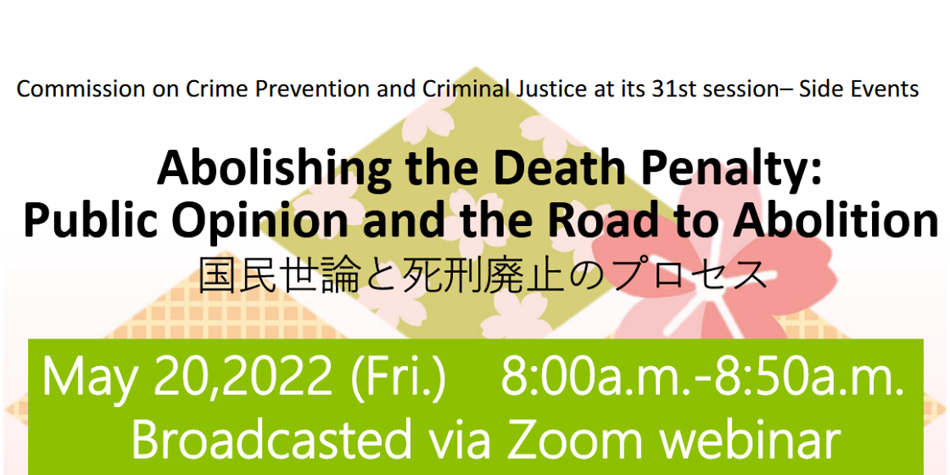
Article(s)
L’opinion publique en soutien à l’abolition
By Sarah Saint-Sorny, on 10 June 2022
La 31ème Session de la Commission sur la Prévention du Crime et la Justice Criminelle de l’ONUDC s’est tenue à Vienne du 16 au 20 mai 2022. A cette occasion, la Japan Federation of Bar Associations a organisé un évènement parallèle : « Abolir la peine de mort : opinion publique et chemin vers l’abolition », qui s’est tenu […]
2022
France
Japan
Public Opinion
United States

Article(s)
Public opinion supportive of the abolition
By Sarah Saint-Sorny, on 10 June 2022
The 31st Session of the Commission on Crime Prevention and Criminal Justice of the ODC took place in Vienna from the 16th to the 20th of May 2022. At this occasion, the Japan Federation of Bar Associations organized a side-event: “Abolishing the Death Penalty: Public Opinion and the Road to Abolition”, which was held online […]
France
Japan
Public Opinion
United States
Document(s)
The Clemency Process in East and Southeast Asia
on 22 March 2022
2022
NGO report
Warning: Undefined variable $liste_type_doc in /home/worldcoa/coalition2020/wp-content/themes/WCADP/template-parts/contents-document.php on line 21
Warning: Undefined variable $liste_pays in /home/worldcoa/coalition2020/wp-content/themes/WCADP/template-parts/contents-document.php on line 40
China
Warning: Undefined variable $liste_themes in /home/worldcoa/coalition2020/wp-content/themes/WCADP/template-parts/contents-document.php on line 35
Clemency
Indonesia
Japan
Malaysia
Singapore
Taiwan
Thailand
Viet Nam
Warning: Undefined variable $tag_langue in /home/worldcoa/coalition2020/wp-content/themes/WCADP/template-parts/contents-document.php on line 85
More details
Warning: Trying to access array offset on value of type bool in /home/worldcoa/coalition2020/wp-content/themes/WCADP/template-parts/contents-document.php on line 97
Warning: Trying to access array offset on value of type bool in /home/worldcoa/coalition2020/wp-content/themes/WCADP/template-parts/contents-document.php on line 99
Warning: Trying to access array offset on value of type bool in /home/worldcoa/coalition2020/wp-content/themes/WCADP/template-parts/contents-document.php on line 99
Download [ - 0 Ko ]
In this report, we summarise the current international position on clemency and the death penalty and compare it to snapshots of the clemency processes in the following Southeast and East Asian countries: Thailand, Malaysia, Singapore, Indonesia, Vietnam, Japan, Taiwan, and China. All references to clemency in this paper are in the context of reprieve from the death penalty.
- Document type NGO report
- Countries list China / Indonesia / Japan / Malaysia / Singapore / Taiwan / Thailand / Viet Nam
- Themes list Clemency
Warning: Undefined variable $lien_langue in /home/worldcoa/coalition2020/wp-content/themes/WCADP/template-parts/contents-document.php on line 127
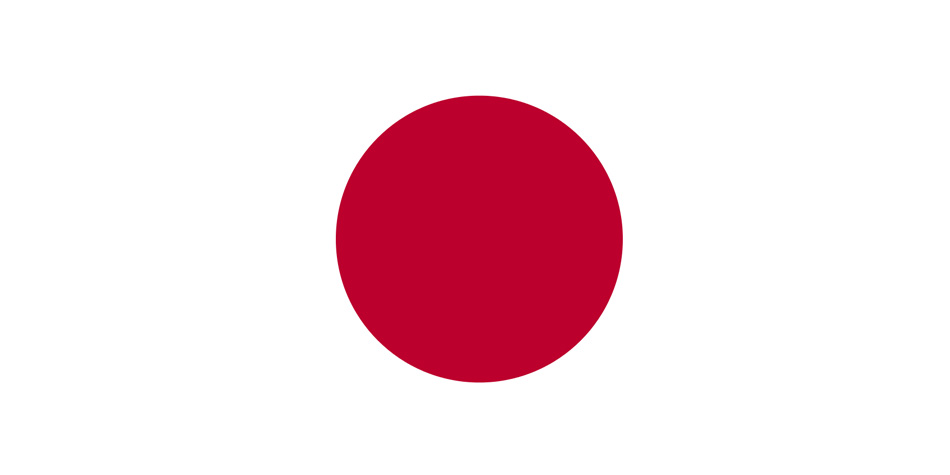
Article(s)
Protest Against Executions Ordered by Minister of Justice Yoshihisa Furukawa
By Center for Prisoner Rights and Japan Innocence and Death Penalty Information Center, on 23 December 2021
On 21 December 2021, Japan’s new governement executed three men after two years with no execution during which Japan hosted the Olympics and the United Nations Congress on Criminal Justice.
2021
Warning: Undefined variable $tmp in /home/worldcoa/coalition2020/wp-content/themes/WCADP/template-parts/contents.php on line 27
Japan
Legal Representation
Moratorium
Document(s)
Japanese : The Chaplain
By Japan Society Film, on 8 September 2020
2020
Multimedia content
Warning: Undefined variable $liste_type_doc in /home/worldcoa/coalition2020/wp-content/themes/WCADP/template-parts/contents-document.php on line 21
Warning: Undefined variable $liste_pays in /home/worldcoa/coalition2020/wp-content/themes/WCADP/template-parts/contents-document.php on line 40
Japan
Warning: Undefined variable $tag_langue in /home/worldcoa/coalition2020/wp-content/themes/WCADP/template-parts/contents-document.php on line 85
More details See the document
The late, great Ren Osugi (Hana-bi) stars as a prison chaplain working on death row in this thought-provoking chamber drama—his final film as an actor and first as a producer. Visiting with a regular roster of inmates who await their final sentence—including a converted ex-yakuza and a philosophy-spouting mass murderer—the newly appointed clergyman gradually learns of their circumstances and is forced to confront his own understanding of life, death and salvation. Featuring unforgettable characters and a restrained visual style, Dai Sako’s searching film takes on the rarely-addressed topic of Japan’s death penalty in order to question the state of the country’s soul.
- Document type Multimedia content
- Countries list Japan
Warning: Undefined variable $liste_themes in /home/worldcoa/coalition2020/wp-content/themes/WCADP/template-parts/contents-document.php on line 114
Warning: Undefined variable $liste_themes in /home/worldcoa/coalition2020/wp-content/themes/WCADP/template-parts/contents-document.php on line 121
- Themes list Retribution, Death Penalty, Country/Regional profiles,
Warning: Undefined variable $lien_langue in /home/worldcoa/coalition2020/wp-content/themes/WCADP/template-parts/contents-document.php on line 127
Document(s)
Viêt Namese : Liệu Hình phạt Tử hình Có Tác dụng Ngăn chặn Tội phạm Giết người ở Nhật Bản?
By David T. Johnson / Asian Law Centre, on 8 September 2020
Multimedia content
Warning: Undefined variable $liste_type_doc in /home/worldcoa/coalition2020/wp-content/themes/WCADP/template-parts/contents-document.php on line 21
Warning: Undefined variable $liste_pays in /home/worldcoa/coalition2020/wp-content/themes/WCADP/template-parts/contents-document.php on line 40
Japan
Warning: Undefined variable $tag_langue in /home/worldcoa/coalition2020/wp-content/themes/WCADP/template-parts/contents-document.php on line 85
More details See the document
Không giống như ở Mỹ, nơi tràn ngập các nghiên cứu về tử hình và tác dụng răn đe của hình phạt này, có rất ít nghiên cứu về hình phạt tử hình và tác dụng răn đe của nó ở Nhật Bản. Mặc dù vậy, người dân và các quan chức nước này vẫn đưa ra những nhậnđịnh đầy tự tin đối với chủ đề này. Trên thực tế, tác dụng răn đe được xem là “điểm tranh cãi chủ chốt giữa các lập luận ủng hộ và phản đối” hình phạt tử hình ở Nhật Bản. Khó khăn trong việc thu thập các số liệu chuẩn mực về tội phạm từ Chính phủ Nhật Bản đã khiến cho việc tiến hành một nghiên cứu nghiêm túc về đề tài này gần như là bất khả thi. Bài viết này sử dụng các số liệu thống kê hàng tháng về tội phạm giết người và tộiphạm giết người cướp mà trước không thể tiếp cận được để xem xét liệu việc tuyên và thực thi án tử hình ở Nhật Bản có tác dụng ngăn chặn những tội phạm kể trên trong giai đoạn từ năm 1990 đến 2010 hay không. Và phát hiện chính của nghiên cứu này là hình phạt tử hình không có tác dụng răn đe tội phạm giết người và tội phạm cướp của giết người trong giai đoạn nói trên. Cần phải có thêm nghiên cứu về đề tài này, tuy nhiên, tại thời điểm hiện tại Chính phủ Nhật Bản không có bất cứ căn cứ chắc chắn nào để tiếp tục khẳng định nước này cần duy trì hình phạt tử hình vì hình phạt này giúp ngăn chặn tội phạm có tính đặc biệt nghiêm trọng.
- Document type Multimedia content
- Countries list Japan
Warning: Undefined variable $liste_themes in /home/worldcoa/coalition2020/wp-content/themes/WCADP/template-parts/contents-document.php on line 114
Warning: Undefined variable $lien_langue in /home/worldcoa/coalition2020/wp-content/themes/WCADP/template-parts/contents-document.php on line 127
Document(s)
The Death Penalty in Japan: A report on Japan’s legal obligations under the International Convenant on Civil and Political Rights and an assessment of public attitudes to capital punishment
By Saul Lehrfreund / Death Penalty Project, on 8 September 2020
NGO report
Warning: Undefined variable $liste_type_doc in /home/worldcoa/coalition2020/wp-content/themes/WCADP/template-parts/contents-document.php on line 21
Warning: Undefined variable $liste_pays in /home/worldcoa/coalition2020/wp-content/themes/WCADP/template-parts/contents-document.php on line 40
Japan
Warning: Undefined variable $tag_langue in /home/worldcoa/coalition2020/wp-content/themes/WCADP/template-parts/contents-document.php on line 85
More details See the document
This report was commissioned by the Death Penalty Project in order to assess Japan’s legal obligations on the use of the death penalty under the ICCPR, and to examine the related subject of public attitudes toward capital punishment in Japan.
- Document type NGO report
- Countries list Japan
Warning: Undefined variable $liste_themes in /home/worldcoa/coalition2020/wp-content/themes/WCADP/template-parts/contents-document.php on line 114
Warning: Undefined variable $liste_themes in /home/worldcoa/coalition2020/wp-content/themes/WCADP/template-parts/contents-document.php on line 121
- Themes list International law, Public opinion,
Warning: Undefined variable $lien_langue in /home/worldcoa/coalition2020/wp-content/themes/WCADP/template-parts/contents-document.php on line 127
Document(s)
MVFHR Asia Speech Tour in Korea & Japan
By Taiwan Alliance to End the Death Penalty / Murder Victims' Families for Human Rights / YouTube, on 8 September 2020
Academic report
Warning: Undefined variable $liste_type_doc in /home/worldcoa/coalition2020/wp-content/themes/WCADP/template-parts/contents-document.php on line 21
Warning: Undefined variable $liste_pays in /home/worldcoa/coalition2020/wp-content/themes/WCADP/template-parts/contents-document.php on line 40
Japan
Warning: Undefined variable $tag_langue in /home/worldcoa/coalition2020/wp-content/themes/WCADP/template-parts/contents-document.php on line 79
Warning: Undefined variable $lien_langue in /home/worldcoa/coalition2020/wp-content/themes/WCADP/template-parts/contents-document.php on line 80
en
More details See the document
MVFHR is an organization formed by a group of victim’s family members. They have traveled across the ocean all the way down to Korea, Japan, and Taiwan to share their stories and views on the death penalty with the local victim’s family members, attorneys, and human rights organizations.
- Document type Academic report
- Countries list Japan
Warning: Undefined variable $liste_themes in /home/worldcoa/coalition2020/wp-content/themes/WCADP/template-parts/contents-document.php on line 114
Warning: Undefined variable $liste_themes in /home/worldcoa/coalition2020/wp-content/themes/WCADP/template-parts/contents-document.php on line 121
- Themes list Murder Victims' Families,
- Available languages MVFHR 飄洋過海來看你:看見被害人 20100704 台北信義誠品
Document(s)
Note verbale dated 10 February 2009 from the Permanent Missions to the United Nations of Afghanistan, the Bahamas, […] and Zimbabwe addressed to the Secretary-General
By United Nations, on 8 September 2020
United Nations report
Warning: Undefined variable $liste_type_doc in /home/worldcoa/coalition2020/wp-content/themes/WCADP/template-parts/contents-document.php on line 21
Warning: Undefined variable $liste_pays in /home/worldcoa/coalition2020/wp-content/themes/WCADP/template-parts/contents-document.php on line 40
Afghanistan
Bahamas
Bahrain
Bangladesh
Barbados
Botswana
Brunei Darussalam
Central African Republic
Chad
China
Comoros
Democratic People's Republic of Korea
Dominica
Egypt
Equatorial Guinea
Eritrea
Eswatini
Ethiopia
Fiji
Gambia
Grenada
Guinea
Guyana
Indonesia
Iran (Islamic Republic of)
Iraq
Jamaica
Japan
Jordan
Kuwait
Lao People's Democratic Republic
Libya
Malaysia
Maldives
Mauritania
Mongolia
Warning: Undefined variable $liste_themes in /home/worldcoa/coalition2020/wp-content/themes/WCADP/template-parts/contents-document.php on line 35
Moratorium
Myanmar
Niger
Nigeria
Papua New Guinea
Qatar
Saint Kitts and Nevis
Saint Lucia
Saint Vincent and the Grenadines
Saudi Arabia
Singapore
Solomon Islands
Somalia
Sudan
Suriname
Syrian Arab Republic
Thailand
Tonga
Trinidad and Tobago
Uganda
United Arab Emirates
Yemen
Zimbabwe
Warning: Undefined variable $tag_langue in /home/worldcoa/coalition2020/wp-content/themes/WCADP/template-parts/contents-document.php on line 54
Warning: Undefined variable $lien_langue in /home/worldcoa/coalition2020/wp-content/themes/WCADP/template-parts/contents-document.php on line 55
aresfrruzh-hant
More details See the document
The Permanent Missions to the United Nations in New York listed below present their compliments to the Secretary-General of the United Nations and have the honour to refer to resolution 62/149, entitled “Moratorium on the use of the death penalty”, which was adopted by the Third Committee on 15 November 2007, and subsequently by the General Assembly on 18 December 2007 by a recorded vote. The Permanent Missions wish to place on record that they are in persistent objection to any attempt to impose a moratorium on the use of the death penalty or its abolition in contravention to existing stipulations under international law, for the following reasons:
- Document type United Nations report
- Countries list Afghanistan / Bahamas / Bahrain / Bangladesh / Barbados / Botswana / Brunei Darussalam / Central African Republic / Chad / China / Comoros / Democratic People's Republic of Korea / Dominica / Egypt / Equatorial Guinea / Eritrea / Eswatini / Ethiopia / Fiji / Gambia / Grenada / Guinea / Guyana / Indonesia / Iran (Islamic Republic of) / Iraq / Jamaica / Japan / Jordan / Kuwait / Lao People's Democratic Republic / Libya / Malaysia / Maldives / Mauritania / Mongolia / Myanmar / Niger / Nigeria / Papua New Guinea / Qatar / Saint Kitts and Nevis / Saint Lucia / Saint Vincent and the Grenadines / Saudi Arabia / Singapore / Solomon Islands / Somalia / Sudan / Suriname / Syrian Arab Republic / Thailand / Tonga / Trinidad and Tobago / Uganda / United Arab Emirates / Yemen / Zimbabwe
- Themes list Moratorium
- Available languages مذكرةشفويةمؤرخة١٠شـباط/فبرايـر٢٠٠٩Nota verbal de fecha 10 de febrero de 2009 dirigida al Secretario General por las misiones permanentes ante las Naciones Unidas del Afganistán, la Arabia Saudita, [...] y ZimbabweNote verbale datée du 10 février 2009, adressée au Secrétaire général par les Missions permanentes auprès de l’Organisation des Nations Unies de l’Afghanistan, de l’Arabie saoudite, [...] et du ZimbabweВербальная нота постоянных представительств Афганистана, БагамскихОстровов, […] и Чада при Организации Объединенных Наций от 10 февраля 2009 года на имя Генерального секретаря9年2月10日阿富汗、巴哈马、巴林、[...] 也门和津巴布韦常驻联合国代表团给秘书长的普通照会
Document(s)
Note verbale dated 11 January 2008 from the Permanent Missions to the United Nations of Afghanistan, Antigua and Barbuda, […] and Zimbabwe addressed to the Secretary-General
By United Nations, on 8 September 2020
United Nations report
Warning: Undefined variable $liste_type_doc in /home/worldcoa/coalition2020/wp-content/themes/WCADP/template-parts/contents-document.php on line 21
Warning: Undefined variable $liste_pays in /home/worldcoa/coalition2020/wp-content/themes/WCADP/template-parts/contents-document.php on line 40
Afghanistan
Antigua and Barbuda
Bahamas
Bahrain
Bangladesh
Barbados
Botswana
Brunei Darussalam
Central African Republic
China
Comoros
Democratic People's Republic of Korea
Dominica
Egypt
Equatorial Guinea
Eritrea
Eswatini
Ethiopia
Fiji
Grenada
Guinea
Guyana
Indonesia
Iran (Islamic Republic of)
Iraq
Jamaica
Japan
Jordan
Kuwait
Lao People's Democratic Republic
Libya
Malaysia
Maldives
Mauritania
Mongolia
Warning: Undefined variable $liste_themes in /home/worldcoa/coalition2020/wp-content/themes/WCADP/template-parts/contents-document.php on line 35
Moratorium
Myanmar
Nigeria
Oman
Pakistan
Papua New Guinea
Qatar
Saint Kitts and Nevis
Saint Lucia
Saint Vincent and the Grenadines
Saudi Arabia
Singapore
Solomon Islands
Somalia
Sudan
Suriname
Syrian Arab Republic
Thailand
Tonga
Trinidad and Tobago
Uganda
United Arab Emirates
Yemen
Zimbabwe
Warning: Undefined variable $tag_langue in /home/worldcoa/coalition2020/wp-content/themes/WCADP/template-parts/contents-document.php on line 54
Warning: Undefined variable $lien_langue in /home/worldcoa/coalition2020/wp-content/themes/WCADP/template-parts/contents-document.php on line 55
aresfrruzh-hant
More details See the document
The Permanent Missions to the United Nations in New York listed below present their compliments to the Secretary-General of the United Nations and have the honour to refer to resolution 62/149, entitled “Moratorium on the use of the death penalty”, which was adopted by the Third Committee on 15 November 2007, and subsequently by the General Assembly on 18 December 2007 by a recorded vote. The Permanent Missions wish to place on record that they are in persistent objection to any attempt to impose a moratorium on the use of the death penalty or its abolition in contravention to existing stipulations under international law, for the following reasons:
- Document type United Nations report
- Countries list Afghanistan / Antigua and Barbuda / Bahamas / Bahrain / Bangladesh / Barbados / Botswana / Brunei Darussalam / Central African Republic / China / Comoros / Democratic People's Republic of Korea / Dominica / Egypt / Equatorial Guinea / Eritrea / Eswatini / Ethiopia / Fiji / Grenada / Guinea / Guyana / Indonesia / Iran (Islamic Republic of) / Iraq / Jamaica / Japan / Jordan / Kuwait / Lao People's Democratic Republic / Libya / Malaysia / Maldives / Mauritania / Mongolia / Myanmar / Nigeria / Oman / Pakistan / Papua New Guinea / Qatar / Saint Kitts and Nevis / Saint Lucia / Saint Vincent and the Grenadines / Saudi Arabia / Singapore / Solomon Islands / Somalia / Sudan / Suriname / Syrian Arab Republic / Thailand / Tonga / Trinidad and Tobago / Uganda / United Arab Emirates / Yemen / Zimbabwe
- Themes list Moratorium
- Available languages مؤرخــةشــفويةمــذكرة11الثــانيكــانون/ينــاير2008Nota verbal de fecha 11 de enero de 2008 dirigida al Secretario General por las Misiones Permanentes ante las Naciones Unidas del Afganistán, Antigua y Barbuda, [...] y Zimbabwe ante las Naciones UnidasNote verbale datée du 11 janvier 2008, adressée au Secrétaire général par les missions permanentes auprès de l’Organisation des Nations Unies de l’Afghanistan, d’Antigua-et-Barbuda, [...] et du ZimbabweВербальная нота Постоянных представительств Антигуа и Барбуды, Афганистана, […] и Японии при Организации Объединенных Наций от 11 января 2008 года на имя Генерального секретаря普通照会2007
Document(s)
The Death Penalty in Japan: The Law of Silence – Going Against the International Trend
By Florence Bellivier / International Federation for Human Rights (FIDH) / Dan Van Raemdonck / Jiazhen Wu, on 8 September 2020
NGO report
Warning: Undefined variable $liste_type_doc in /home/worldcoa/coalition2020/wp-content/themes/WCADP/template-parts/contents-document.php on line 21
Warning: Undefined variable $liste_pays in /home/worldcoa/coalition2020/wp-content/themes/WCADP/template-parts/contents-document.php on line 40
Japan
Warning: Undefined variable $tag_langue in /home/worldcoa/coalition2020/wp-content/themes/WCADP/template-parts/contents-document.php on line 79
Warning: Undefined variable $lien_langue in /home/worldcoa/coalition2020/wp-content/themes/WCADP/template-parts/contents-document.php on line 80
fr
More details See the document
This report is the outcome of a fact-finding mission conducted by FIDH in July 2008, in order to assess the measures taken by the Japanese government to implement the recommendations made by a previous investigation, conducted in 2003.The conclusions of the report are appalling. According to Florence Bellivier, General Secretary of FIDH “Japan continues to condemn criminals to death, and incarcerate them up for decades, in prisons where secrecy and isolation are commonplace, in total disregard of the world opinion”. In addition, the rhythm of the executions has accelerated over the recent years. “2008 has been a record year, with more executions this year than in any other of the last fifteen years. We are witnessing a real step backwards” added Dan Van Raemdonck, Vice-President of FIDH. Thirteen persons have been executed since the beginning of the year, and 102 are currently on death row. There has not been a single retrial of a death penalty case since 1986, and no convicted prisoner has been pardoned since 1975.
- Document type NGO report
- Countries list Japan
Warning: Undefined variable $liste_themes in /home/worldcoa/coalition2020/wp-content/themes/WCADP/template-parts/contents-document.php on line 114
Warning: Undefined variable $liste_themes in /home/worldcoa/coalition2020/wp-content/themes/WCADP/template-parts/contents-document.php on line 121
- Themes list Transparency, Country/Regional profiles,
- Available languages La peine de mort au Japon: la loi du silence - À contre-courant de la tendance internationale
Document(s)
Japan: “Will this day be my last?” The death penalty in Japan
By Amnesty International, on 8 September 2020
NGO report
Warning: Undefined variable $liste_type_doc in /home/worldcoa/coalition2020/wp-content/themes/WCADP/template-parts/contents-document.php on line 21
Warning: Undefined variable $liste_pays in /home/worldcoa/coalition2020/wp-content/themes/WCADP/template-parts/contents-document.php on line 40
Japan
Warning: Undefined variable $tag_langue in /home/worldcoa/coalition2020/wp-content/themes/WCADP/template-parts/contents-document.php on line 79
Warning: Undefined variable $lien_langue in /home/worldcoa/coalition2020/wp-content/themes/WCADP/template-parts/contents-document.php on line 80
enes
More details See the document
This report examines a number of concerns related to the application of the death penalty in Japan, where approximately 87 prisoners currently remain on death row. These concerns include the fact that a prisoner is notified of the execution on the morning of the day it is to be carried out. In some cases the prisoner is not notified at all. This means that prisoners live with the constant fear of execution, not knowing whether they will be alive the next day. Amnesty International calls on the Japanese government to abolish the death penalty as a matter of urgency.
- Document type NGO report
- Countries list Japan
Warning: Undefined variable $liste_themes in /home/worldcoa/coalition2020/wp-content/themes/WCADP/template-parts/contents-document.php on line 114
Warning: Undefined variable $liste_themes in /home/worldcoa/coalition2020/wp-content/themes/WCADP/template-parts/contents-document.php on line 121
- Themes list Transparency, Country/Regional profiles,
- Available languages Japanese : 今日が最期の日?“¿Será éste mi último día?” La pena de muerte en Japón
Document(s)
Japanese : 今日が最期の日?
By Amnesty International, on 8 September 2020
NGO report
Warning: Undefined variable $liste_type_doc in /home/worldcoa/coalition2020/wp-content/themes/WCADP/template-parts/contents-document.php on line 21
Warning: Undefined variable $liste_pays in /home/worldcoa/coalition2020/wp-content/themes/WCADP/template-parts/contents-document.php on line 40
Japan
Warning: Undefined variable $tag_langue in /home/worldcoa/coalition2020/wp-content/themes/WCADP/template-parts/contents-document.php on line 79
Warning: Undefined variable $lien_langue in /home/worldcoa/coalition2020/wp-content/themes/WCADP/template-parts/contents-document.php on line 80
enes
More details See the document
日本では、死刑執行の予定日に刑務所の外で監視行動などがおこなわれることはない。処刑がおこなわれるかどうかは当局だけが知るところだからである。また処刑は通常、国会が閉会中で処刑の問題を国会で協議することができないような時期におこなわれる。臼井日出男元法相によれば、「死刑についての論議を大々的にする」機会を野党議員に与えないために、このような方針がとられているということである。死刑の執行に関して唯一明らかにされているのは、定期的に法務省が出す統計情報である。執行された人の名前は明らかにはされず、家族が公開しないかぎり知ることはできない。法務省はこうした秘密主義は, 死刑囚の家族を、身内が処刑されたと知られないよう、保護するためだとしている。
- Document type NGO report
- Countries list Japan
Warning: Undefined variable $liste_themes in /home/worldcoa/coalition2020/wp-content/themes/WCADP/template-parts/contents-document.php on line 114
Warning: Undefined variable $liste_themes in /home/worldcoa/coalition2020/wp-content/themes/WCADP/template-parts/contents-document.php on line 121
- Themes list Transparency, Country/Regional profiles,
- Available languages Japan: "Will this day be my last?" The death penalty in Japan“¿Será éste mi último día?” La pena de muerte en Japón
Document(s)
Japanese : 21世紀 日本に死刑は必要か?死刑執行停止法の制定を求めて
By Japan Federation of Bar Associations, on 8 September 2020
NGO report
Warning: Undefined variable $liste_type_doc in /home/worldcoa/coalition2020/wp-content/themes/WCADP/template-parts/contents-document.php on line 21
Warning: Undefined variable $liste_pays in /home/worldcoa/coalition2020/wp-content/themes/WCADP/template-parts/contents-document.php on line 40
Japan
Warning: Undefined variable $tag_langue in /home/worldcoa/coalition2020/wp-content/themes/WCADP/template-parts/contents-document.php on line 85
More details See the document
賛否が分かれる死刑制度2006年9月現在、死刑制度を維持している国は、世界で68か国です。死刑制度に賛成の立場からは、人の生命を奪った者が自らの生命を奪われるのは当然である、という応報的な考え方や、愛する者を奪われた被害者遺族の感情を考えれば死刑は必要である、死刑の威嚇によって犯罪を抑止することができる、などが死刑制度を維持すべき理由として挙げられています。一方、死刑を廃止している国は129か国。死刑制度に反対の立場からは、人権保障の観点から、たとえ国家であっても生命という究極の価値を奪うことは許されない、死刑は残虐で非人道的な刑罰である、とする考えや、誤判による死刑のおそれがあること、死刑に犯罪抑止の効果は実証されていないこと、などが挙げられています。
- Document type NGO report
- Countries list Japan
Warning: Undefined variable $liste_themes in /home/worldcoa/coalition2020/wp-content/themes/WCADP/template-parts/contents-document.php on line 114
Warning: Undefined variable $liste_themes in /home/worldcoa/coalition2020/wp-content/themes/WCADP/template-parts/contents-document.php on line 121
- Themes list Networks,
Warning: Undefined variable $lien_langue in /home/worldcoa/coalition2020/wp-content/themes/WCADP/template-parts/contents-document.php on line 127
Document(s)
Japanese : 「人権と死刑を考える国際リーダーシップ会議」
By Japan Federation of Bar Associations, on 8 September 2020
NGO report
Warning: Undefined variable $liste_type_doc in /home/worldcoa/coalition2020/wp-content/themes/WCADP/template-parts/contents-document.php on line 21
Warning: Undefined variable $liste_pays in /home/worldcoa/coalition2020/wp-content/themes/WCADP/template-parts/contents-document.php on line 40
Japan
Warning: Undefined variable $tag_langue in /home/worldcoa/coalition2020/wp-content/themes/WCADP/template-parts/contents-document.php on line 85
More details See the document
欧州連合(EU)の行政機関として、死刑廃止政策を積極的に推進するECからは、駐日EC代表部のライテラー公使が、裁判員制度を目前に控えるなか、死刑の存廃・目的・機能、適用方法、犯罪被害者遺族のみならず被執行者遺族の問題を議論することが必要と指摘し、「世論調査による80%の死刑支持率は、死刑継続の正当化ではなく、さらなる議論を要することを示すもの」と語った。またABAからは、多忙なスケジュールの合間をぬって来日したマイケル・グレコ会長が発言した。ABAは、死刑存廃に関する態度は留保したまま、死刑制度に関するさまざまな問題点を指摘し、97年2月に死刑執行停止を求める決議を採択し、死刑制度の運用や死刑事件弁護等に関するガイドラインを制定するほか、さまざまなプログラムを全米さらには海外で展開している。グレコ会長は、「命が奪われる前には、公正な裁判が行われなければならない」として、法律家の責任を強く訴えた
- Document type NGO report
- Countries list Japan
Warning: Undefined variable $liste_themes in /home/worldcoa/coalition2020/wp-content/themes/WCADP/template-parts/contents-document.php on line 114
Warning: Undefined variable $liste_themes in /home/worldcoa/coalition2020/wp-content/themes/WCADP/template-parts/contents-document.php on line 121
- Themes list Networks,
Warning: Undefined variable $lien_langue in /home/worldcoa/coalition2020/wp-content/themes/WCADP/template-parts/contents-document.php on line 127
Document(s)
Japanese : 特集/死刑を考える
By 現代人文社編集部・編 / 季刊刑事弁護, on 8 September 2020
Article
Warning: Undefined variable $liste_type_doc in /home/worldcoa/coalition2020/wp-content/themes/WCADP/template-parts/contents-document.php on line 21
Warning: Undefined variable $liste_pays in /home/worldcoa/coalition2020/wp-content/themes/WCADP/template-parts/contents-document.php on line 40
Japan
Warning: Undefined variable $tag_langue in /home/worldcoa/coalition2020/wp-content/themes/WCADP/template-parts/contents-document.php on line 85
More details See the document
【特集】死刑を考える・死刑代替刑としての終身刑・死刑廃止議員連盟の法案作成課程を振り返る・死刑廃止をめぐる最近の国際的動向・死刑求刑検察官上告5事件以降の死刑判決の分析・共犯事件の死刑適用基準・死刑判決に対する被告人による上訴取下げの問題点
- Document type Article
- Countries list Japan
Warning: Undefined variable $liste_themes in /home/worldcoa/coalition2020/wp-content/themes/WCADP/template-parts/contents-document.php on line 114
Warning: Undefined variable $lien_langue in /home/worldcoa/coalition2020/wp-content/themes/WCADP/template-parts/contents-document.php on line 127
Document(s)
Japanese : 死刑民主主義国家にあるまじき行為
By International Federation for Human Rights (FIDH) / Sharon Hom / Etienne Jaudel / Richard Wild, on 8 September 2020
NGO report
Warning: Undefined variable $liste_type_doc in /home/worldcoa/coalition2020/wp-content/themes/WCADP/template-parts/contents-document.php on line 21
Warning: Undefined variable $liste_pays in /home/worldcoa/coalition2020/wp-content/themes/WCADP/template-parts/contents-document.php on line 40
Japan
Warning: Undefined variable $tag_langue in /home/worldcoa/coalition2020/wp-content/themes/WCADP/template-parts/contents-document.php on line 79
Warning: Undefined variable $lien_langue in /home/worldcoa/coalition2020/wp-content/themes/WCADP/template-parts/contents-document.php on line 80
enfr
More details See the document
廃止推進団体の努力にもかかわらず、世論には、死刑制度の継続を支持する強い傾向があることは確かです。死刑適用の実状を政府が隠し、これまでよかったといわれた治安が徐々に悪化していることもあり、この時機に政府が、国民に不人気な決断をすることはないでしょう。欧州評議会をはじめとする、国際組織からの圧力に対して、政府は「内政に対する許しがたい干渉」ときめつけています。保守派が与党の政府において、廃止に向けての議論が政治決定となる気配はありません。 日本のすべての弁護士が加盟する日弁連は、廃止法案提案でコンセンサスに至らなかったという事実が、現時点で死刑がなくなる可能性が少ないことを雄弁に物語っています。
- Document type NGO report
- Countries list Japan
Warning: Undefined variable $liste_themes in /home/worldcoa/coalition2020/wp-content/themes/WCADP/template-parts/contents-document.php on line 114
Warning: Undefined variable $liste_themes in /home/worldcoa/coalition2020/wp-content/themes/WCADP/template-parts/contents-document.php on line 121
- Themes list Country/Regional profiles,
- Available languages The Death Penalty in Japan: A Practice Unworthy of a DemocracyLa peine de mort au Japon, une pratique indigne d'une démocratie
Document(s)
Japanese : 死刑制度問題に関する提言
By Japan Federation of Bar Associations, on 8 September 2020
NGO report
Warning: Undefined variable $liste_type_doc in /home/worldcoa/coalition2020/wp-content/themes/WCADP/template-parts/contents-document.php on line 21
Warning: Undefined variable $liste_pays in /home/worldcoa/coalition2020/wp-content/themes/WCADP/template-parts/contents-document.php on line 40
Japan
Warning: Undefined variable $tag_langue in /home/worldcoa/coalition2020/wp-content/themes/WCADP/template-parts/contents-document.php on line 79
Warning: Undefined variable $lien_langue in /home/worldcoa/coalition2020/wp-content/themes/WCADP/template-parts/contents-document.php on line 80
en
More details See the document
国連の国際人権(自由権)規約は、第6 条6 項において、「この条のいかなる規定も、この規約の締約国により死刑の廃止を遅らせ又は妨げるために援用されてはならない」として、死刑廃止の方向性を確認していたが、1989 年、国連総会において国際人権(自由権)規約第二選択議定書、いわゆる「死刑廃止条約」(以下、「死刑廃止条約」という。)が採択され(1991 年発効)、死刑の廃止が明確化された。日本は米国・中国などと共に同条約に反対し、今日に至るまで批准していない(注1)。また、国際人権(自由権)規約人権委員会は、1993 年11 月4 日、第3 回の日本政府報告書の審査にあたり、日本政府に対し、死刑廃止に向けた措置をとること、および死刑確定者のおかれた拘禁状態が規約に違反するとして、これを改善することを勧告している。しかし、その後も日本において前記勧告を受けての改善は一切なされず、同委員会は1998 年11 月6 日に再度、日本政府に対し、死刑の廃止および死刑確定者処遇の改善を勧告した。
- Document type NGO report
- Countries list Japan
Warning: Undefined variable $liste_themes in /home/worldcoa/coalition2020/wp-content/themes/WCADP/template-parts/contents-document.php on line 114
Warning: Undefined variable $liste_themes in /home/worldcoa/coalition2020/wp-content/themes/WCADP/template-parts/contents-document.php on line 121
- Themes list Networks,
- Available languages Recommendations on the Capital Punishment System
Document(s)
The Death Penalty in Japan: An “Absurd” Punishment
By Joachim Herrmann / Brooklyn Law Review, on 8 September 2020
Article
Warning: Undefined variable $liste_type_doc in /home/worldcoa/coalition2020/wp-content/themes/WCADP/template-parts/contents-document.php on line 21
Warning: Undefined variable $liste_pays in /home/worldcoa/coalition2020/wp-content/themes/WCADP/template-parts/contents-document.php on line 40
Japan
Warning: Undefined variable $tag_langue in /home/worldcoa/coalition2020/wp-content/themes/WCADP/template-parts/contents-document.php on line 85
More details See the document
This article outlines some of the main arguments against the death penalty in Japan.
- Document type Article
- Countries list Japan
Warning: Undefined variable $liste_themes in /home/worldcoa/coalition2020/wp-content/themes/WCADP/template-parts/contents-document.php on line 114
Warning: Undefined variable $lien_langue in /home/worldcoa/coalition2020/wp-content/themes/WCADP/template-parts/contents-document.php on line 127
Document(s)
The Culture of Capital Punishment in Japan
By David T. Johnson, on 4 July 2020
2020
Academic report
Warning: Undefined variable $liste_type_doc in /home/worldcoa/coalition2020/wp-content/themes/WCADP/template-parts/contents-document.php on line 21
Warning: Undefined variable $liste_pays in /home/worldcoa/coalition2020/wp-content/themes/WCADP/template-parts/contents-document.php on line 40
Japan
Warning: Undefined variable $tag_langue in /home/worldcoa/coalition2020/wp-content/themes/WCADP/template-parts/contents-document.php on line 85
More details See the document
Japan retains the death penalty for three main reasons: because it missed a major opportunity for abolition in the postwar Occupation, because of the long hegemony of the (conservative) Liberal Democratic Party, and because (like the United States and China) it has sufficient size, economic influence, and political clout to enable it to defy human rights norms. Capital punishment also persists in Japan because it performs welcome functions for politicians, prosecutors, media, and the public.
Despite widespread belief to the contrary, capital punishment in Japan does not deter homicide better than long terms of imprisonment do.
- Document type Academic report
- Countries list Japan
Warning: Undefined variable $liste_themes in /home/worldcoa/coalition2020/wp-content/themes/WCADP/template-parts/contents-document.php on line 114
Warning: Undefined variable $lien_langue in /home/worldcoa/coalition2020/wp-content/themes/WCADP/template-parts/contents-document.php on line 127
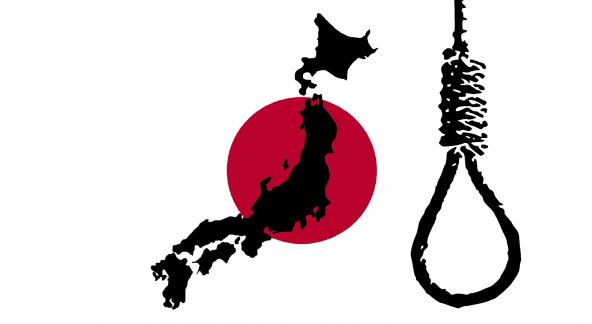
Article(s)
Regarding the execution in Japan of seven people
By World Coalition Against the Death Penalty, on 10 July 2018
STATEMENT – WORLD COALITION AGAINST THE DEATH PENALTY The World Coalition Against the Death Penalty would like to express its sympathy and support to all courageous anti-death penalty activists who have fought bravely to try to prevent the executions of seven people in Japan on the same day, on 6 July. The World Coalition calls […]
2018
Japan
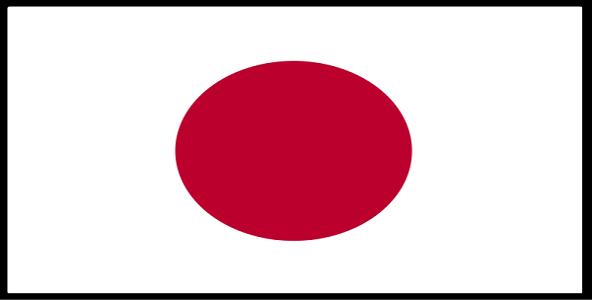
Article(s)
Joint statement of the death penalty in Japan
By Center for Prisoners' Rights and Japan Innocence & Death Penalty Information Center, on 30 March 2018
Joint Statement signed by Center for Prisoners’ Rights and Japan Innocence & Death Penalty Information Center to to call Japanese government for a sincere dialogue while condemning the government for refusing a dialogue with international communityand not accepting capital punishment as a human rights issue.
2018
Japan
Document(s)
Does the Death Penalty Deter Homicide in Japan?
By David T. Johnson / Asian Law Centre, on 1 January 2017
2017
Multimedia content
Warning: Undefined variable $liste_type_doc in /home/worldcoa/coalition2020/wp-content/themes/WCADP/template-parts/contents-document.php on line 21
Warning: Undefined variable $liste_pays in /home/worldcoa/coalition2020/wp-content/themes/WCADP/template-parts/contents-document.php on line 40
Japan
Warning: Undefined variable $tag_langue in /home/worldcoa/coalition2020/wp-content/themes/WCADP/template-parts/contents-document.php on line 85
More details See the document
Unlike the United States, where death penalty and deterrence studies are legion, there has been little research about the death penalty and deterrence in Japan, though the paucity of studies has not discouraged citizens and officials from making confident claims about this issue. Indeed, deterrence has been called “the core of argumentation for and against” the death penalty in Japan. Serious research on this subject has beenall but impossible because of difficulties obtaining decent crime data from the Japanese government. This paper uses monthly homicide and robbery-homicide statistics thatwere previously unavailable to examine whether death sentences and executions in Japan deterred these crimes from 1990 to 2010. The main finding is that the death penalty did not deter homicide or robbery-homicide during this period. More research is needed on this subject, but at present the Japanese government has no sound basis for continuing to claim that the country needs to retain the death penalty because it detersheinous crime.
- Document type Multimedia content
- Countries list Japan
Warning: Undefined variable $liste_themes in /home/worldcoa/coalition2020/wp-content/themes/WCADP/template-parts/contents-document.php on line 114
Warning: Undefined variable $liste_themes in /home/worldcoa/coalition2020/wp-content/themes/WCADP/template-parts/contents-document.php on line 121
- Themes list Deterrence , Death Penalty,
Warning: Undefined variable $lien_langue in /home/worldcoa/coalition2020/wp-content/themes/WCADP/template-parts/contents-document.php on line 127
Document(s)
Japanese Moratorium on the Death Penalty
By Mika Obara-Minnitt, on 1 January 2016
2016
Book
Warning: Undefined variable $liste_type_doc in /home/worldcoa/coalition2020/wp-content/themes/WCADP/template-parts/contents-document.php on line 21
Warning: Undefined variable $liste_pays in /home/worldcoa/coalition2020/wp-content/themes/WCADP/template-parts/contents-document.php on line 40
Japan
Warning: Undefined variable $tag_langue in /home/worldcoa/coalition2020/wp-content/themes/WCADP/template-parts/contents-document.php on line 85
More details See the document
While the number of states that retain capital punishment is declining, Japan has maintained the death penalty in its legislation. In the case of Japan, the government has consistently justified the retention and use of the death penalty on the basis of national law. However, the country as recently experienced a number of de facto moratorium periods on executions. This book addresses how the Ministry of Justice in Japan has justified capital punishment policy during these de facto moratorium periods. The primary goal of this volume is to provide a better understanding of the elite-driven nature of the capital punishment system in Japan. It also addresses the domestic and cultural factors of the capital punishment policy and the rhetoric of the Ministry of Justice in its justification of capital punishment policy.
- Document type Book
- Countries list Japan
Warning: Undefined variable $liste_themes in /home/worldcoa/coalition2020/wp-content/themes/WCADP/template-parts/contents-document.php on line 114
Warning: Undefined variable $liste_themes in /home/worldcoa/coalition2020/wp-content/themes/WCADP/template-parts/contents-document.php on line 121
- Themes list Moratorium , Death Penalty, Country/Regional profiles,
Warning: Undefined variable $lien_langue in /home/worldcoa/coalition2020/wp-content/themes/WCADP/template-parts/contents-document.php on line 127
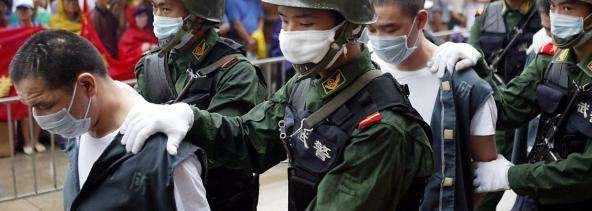
Article(s)
Imposing the death penalty has not reduced drug crimes in Asia -New Report
By FIDH & World Coalition, on 10 October 2015
Death penalty for drug crimes in Asia: an illegal practice reveals report published on World Day by FIDH and the World Coalition
2015
Afghanistan
Bangladesh
China
Democratic People's Republic of Korea
Drug Offenses
India
Indonesia
Iran (Islamic Republic of)
Japan
Lao People's Democratic Republic
Malaysia
Maldives
Myanmar
Pakistan
Republic of Korea
Singapore
Sri Lanka
Taiwan
Thailand
Viet Nam
Document(s)
Wrongful Convictions and the Culture of Denial in Japanese Criminal Justice
By David T. Johnson / The Asia-Pacific Journal, on 1 January 2015
2015
Article
Warning: Undefined variable $liste_type_doc in /home/worldcoa/coalition2020/wp-content/themes/WCADP/template-parts/contents-document.php on line 21
Warning: Undefined variable $liste_pays in /home/worldcoa/coalition2020/wp-content/themes/WCADP/template-parts/contents-document.php on line 40
Japan
Warning: Undefined variable $tag_langue in /home/worldcoa/coalition2020/wp-content/themes/WCADP/template-parts/contents-document.php on line 85
More details See the document
The release of Hakamada Iwao from death row in March 2014 after 48 years of incarceration provides an opportunity to reflect on wrongful convictions in Japanese criminal justice. My approach is comparative because this problem cannot be understood without asking how Japan compares with other countries: to know only one country is to know no country well. Comparison with the United States is especially instructive because there have been many studies of wrongful conviction there and because the U.S. and Japan are the only two developed democracies that retain capital punishment and continue to carry out executions on a regular basis. On the surface, the United States seems to have a more serious problem with wrongful convictions than Japan, but this gap is more apparent than real. To reduce the problem of wrongful convictions in Japanese criminal justice, reformers must confront a culture of denial that makes it difficult for police, prosecutors, and judges to acknowledge their own mistakes.
- Document type Article
- Countries list Japan
Warning: Undefined variable $liste_themes in /home/worldcoa/coalition2020/wp-content/themes/WCADP/template-parts/contents-document.php on line 114
Warning: Undefined variable $liste_themes in /home/worldcoa/coalition2020/wp-content/themes/WCADP/template-parts/contents-document.php on line 121
- Themes list Fair Trial, Innocence,
Warning: Undefined variable $lien_langue in /home/worldcoa/coalition2020/wp-content/themes/WCADP/template-parts/contents-document.php on line 127
Document(s)
An Innocent Man: Hakamada Iwao and the Problem of Wrongful Convictions in Japan
By David T. Johnson / The Asia-Pacific Journal, on 1 January 2015
Article
Warning: Undefined variable $liste_type_doc in /home/worldcoa/coalition2020/wp-content/themes/WCADP/template-parts/contents-document.php on line 21
Warning: Undefined variable $liste_pays in /home/worldcoa/coalition2020/wp-content/themes/WCADP/template-parts/contents-document.php on line 40
Japan
Warning: Undefined variable $tag_langue in /home/worldcoa/coalition2020/wp-content/themes/WCADP/template-parts/contents-document.php on line 85
More details See the document
The main aim of this article is to explore the problem of wrongful convictions in Japanese criminal justice by focusing on the case of Hakamada Iwao, who was sentenced to death in 1968 and released in 2014 because of evidence of his innocence.
- Document type Article
- Countries list Japan
Warning: Undefined variable $liste_themes in /home/worldcoa/coalition2020/wp-content/themes/WCADP/template-parts/contents-document.php on line 114
Warning: Undefined variable $liste_themes in /home/worldcoa/coalition2020/wp-content/themes/WCADP/template-parts/contents-document.php on line 121
- Themes list Fair Trial, Innocence,
Warning: Undefined variable $lien_langue in /home/worldcoa/coalition2020/wp-content/themes/WCADP/template-parts/contents-document.php on line 127
Document(s)
Will Wrongful Convictions Be a Catalyst for Change in Japanese Criminal Justice?
By David T. Johnson / The Asia-Pacific Journal / Matthew Carney, on 1 January 2015
Article
Warning: Undefined variable $liste_type_doc in /home/worldcoa/coalition2020/wp-content/themes/WCADP/template-parts/contents-document.php on line 21
Warning: Undefined variable $liste_pays in /home/worldcoa/coalition2020/wp-content/themes/WCADP/template-parts/contents-document.php on line 40
Japan
Warning: Undefined variable $tag_langue in /home/worldcoa/coalition2020/wp-content/themes/WCADP/template-parts/contents-document.php on line 85
More details See the document
This article is a written explanation of the 12-minute Australian Broadcasting Corporation video of the same name.
- Document type Article
- Countries list Japan
Warning: Undefined variable $liste_themes in /home/worldcoa/coalition2020/wp-content/themes/WCADP/template-parts/contents-document.php on line 114
Warning: Undefined variable $liste_themes in /home/worldcoa/coalition2020/wp-content/themes/WCADP/template-parts/contents-document.php on line 121
- Themes list Fair Trial, Trend Towards Abolition, Innocence,
Warning: Undefined variable $lien_langue in /home/worldcoa/coalition2020/wp-content/themes/WCADP/template-parts/contents-document.php on line 127
Document(s)
Will Wrongful Convictions Be a Catalyst for Change in Japanese Criminal Justice?
By Australian Broadcasting Company, on 1 January 2015
Multimedia content
Warning: Undefined variable $liste_type_doc in /home/worldcoa/coalition2020/wp-content/themes/WCADP/template-parts/contents-document.php on line 21
Warning: Undefined variable $liste_pays in /home/worldcoa/coalition2020/wp-content/themes/WCADP/template-parts/contents-document.php on line 40
Japan
Warning: Undefined variable $tag_langue in /home/worldcoa/coalition2020/wp-content/themes/WCADP/template-parts/contents-document.php on line 85
More details See the document
Televised report on the flawed Japanese Justice System in an analysis of 2 exonorated prisoners from death row.
- Document type Multimedia content
- Countries list Japan
Warning: Undefined variable $liste_themes in /home/worldcoa/coalition2020/wp-content/themes/WCADP/template-parts/contents-document.php on line 114
Warning: Undefined variable $liste_themes in /home/worldcoa/coalition2020/wp-content/themes/WCADP/template-parts/contents-document.php on line 121
- Themes list Fair Trial, Innocence,
Warning: Undefined variable $lien_langue in /home/worldcoa/coalition2020/wp-content/themes/WCADP/template-parts/contents-document.php on line 127
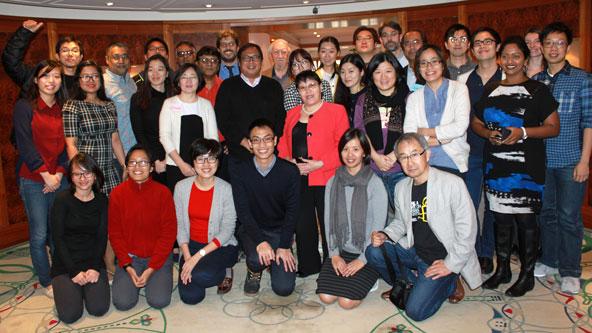
Article(s)
ADPAN network strengthens abolitionists across Asia
By Aurélie Plaçais (in Taipei, Taiwan), on 9 December 2014
The Anti-Death Penalty Asia Network, a coalition hosted by Amnesty International in London since 2006, has become an independent organisation registered in Malaysia and held its first AGM in Taipei, Taiwan on 4-5 December.
2014
China
Japan
Malaysia
Mongolia
Public Opinion
Republic of Korea
Taiwan
Taiwan

Article(s)
Asia develops into hub of abolitionist dialogue
By Emile Carreau, on 6 November 2014
World Coalition member, Community of Sant’Egidio, has organised anti-death penalty conferences in Japan and the Philippines, both of which were overwhelmingly attended. Further conferences in the region are set to continue.
2014
Cambodia
India
Indonesia
Japan
Lao People's Democratic Republic
Philippines
Sri Lanka
Viet Nam
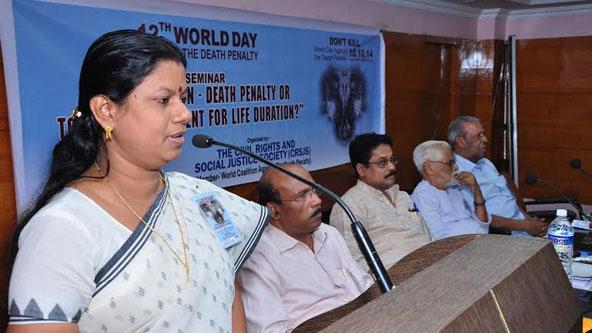
Article(s)
Links between death penalty and mental health exposed from Japan to Nigeria
By Thomas Hubert, on 15 October 2014
The 12th World Day Against the Death Penalty was marked by hundreds of actions on all continents, in the media and online.
2014
Japan
Mental Illness
Document(s)
Japan : 111 th Session of the Human Rights Committee
By World Coalition Against the Death Penalty / The Advocates for Human Rights / Center for Prisoners' Rights / Fédération Internationale des Ligues des Droits de l'Homme (FIDH), on 1 January 2014
2014
Multimedia content
Warning: Undefined variable $liste_type_doc in /home/worldcoa/coalition2020/wp-content/themes/WCADP/template-parts/contents-document.php on line 21
Warning: Undefined variable $liste_pays in /home/worldcoa/coalition2020/wp-content/themes/WCADP/template-parts/contents-document.php on line 40
Japan
Warning: Undefined variable $tag_langue in /home/worldcoa/coalition2020/wp-content/themes/WCADP/template-parts/contents-document.php on line 85
More details See the document
This report examinesprison conditionsandthe imposition of the death penalty in Japan in light of international human rights standards.
- Document type Multimedia content
- Countries list Japan
Warning: Undefined variable $liste_themes in /home/worldcoa/coalition2020/wp-content/themes/WCADP/template-parts/contents-document.php on line 114
Warning: Undefined variable $liste_themes in /home/worldcoa/coalition2020/wp-content/themes/WCADP/template-parts/contents-document.php on line 121
- Themes list Due Process , International law, Death Row Conditions,
Warning: Undefined variable $lien_langue in /home/worldcoa/coalition2020/wp-content/themes/WCADP/template-parts/contents-document.php on line 127
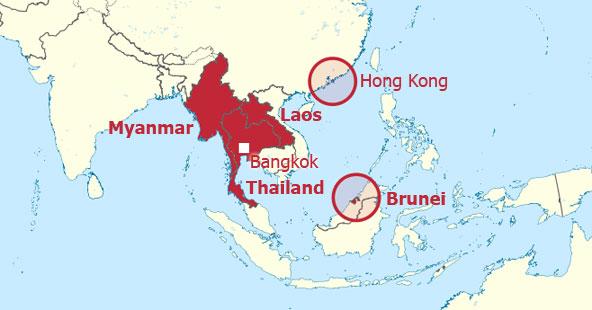
Article(s)
Moving away from the death penalty in Asia
By Sandra Babcock (DeathPenaltyWorldwide.org) in Bangkok, on 25 October 2013
Following up on the World Day Against the Death Penalty, successive meetings in Thailand and in China highlight decreasing support for capital punishment among Asian governments and public opinion.
2013
Brunei Darussalam
China
Japan
Lao People's Democratic Republic
Moratorium
Myanmar
Public Opinion
Thailand
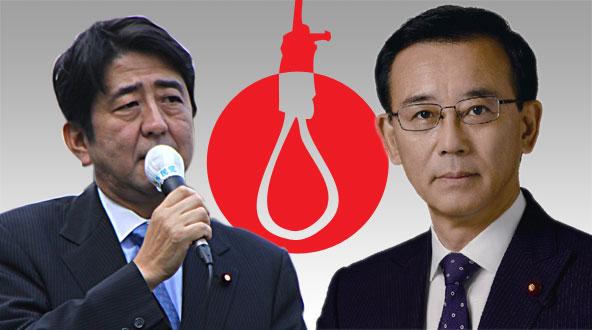
Article(s)
Latest Japan execution violates UN guidelines
on 16 September 2013
World Coalition member organisation Center for Prisoners’ Rights condemns the execution of an elderly prisoner in Tokyo on 12 September.
2013
Japan
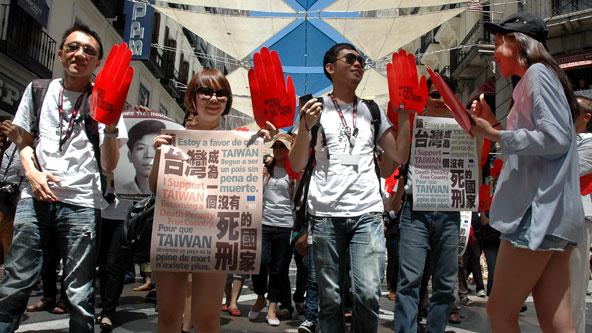
Article(s)
Asian progress paves the way for new strategies
By Thomas Hubert, on 20 June 2013
Although most executions continue to take place in Asia, their number is going down – and abolitionists are coming up with new ideas to bring about abolition.
2013
India
Japan
Malaysia
Mongolia
Moratorium
Warning: Undefined variable $tmp in /home/worldcoa/coalition2020/wp-content/themes/WCADP/template-parts/contents.php on line 27
Singapore
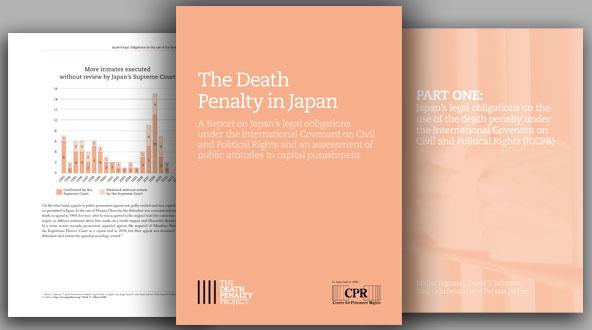
Article(s)
Japan in breach of international standards, opinion wavering – study
By Thomas Hubert, on 14 March 2013
A report published by the Death Penalty Project and the Center for Prisoners’ Rights shows that Japanese law and practice on capital punishment violate international treaties, and questions the high level of public support for the death penalty reported by the authorities.
2013
Japan
Public Opinion

Article(s)
First executions under Abe government raise fears of more
By Thomas Hubert, on 21 February 2013
Abolitionists worldwide protest the execution of three prisoners in Japan on 21st February and call on the new justice minister to heed international calls for restraint.
2013
Japan
Moratorium
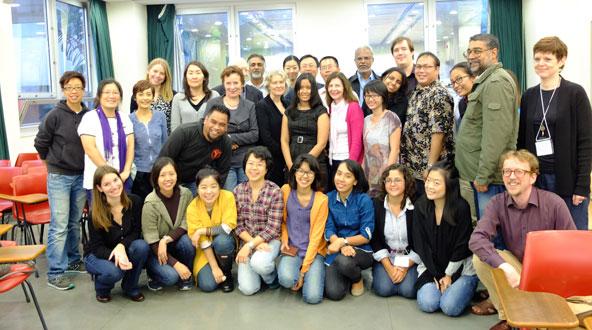
Article(s)
Building a death penalty-free future in Asia
By Aurélie Plaçais, on 6 December 2012
Ways to strengthen transregional action led by Asian activists and ideas to combat obstruction from national authorities were among the issues discussed at the third ADPAN consultative meeting.
2012
Australia
Bangladesh
China
India
Indonesia
Japan
Malaysia
Mongolia
Moratorium
Pakistan
Philippines
Republic of Korea
Singapore
Taiwan
Thailand
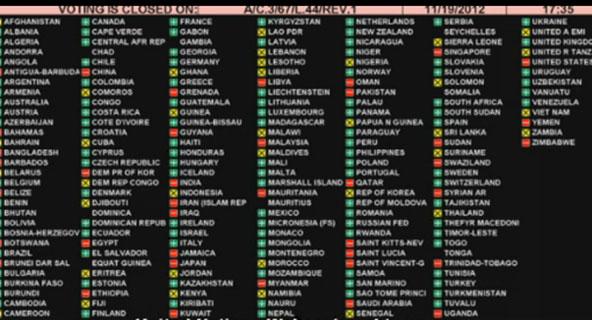
Article(s)
UN General Assembly Committee adopts draft moratorium resolution
By Maria Donatelli, on 20 November 2012
A majority of the world’s nations have approved a text calling for a global moratorium on executions, with stronger support than in a previous vote two years ago.
2012
Afghanistan
Bangladesh
Botswana
Central African Republic
Croatia
Cuba
Egypt
India
Indonesia
Japan
Malaysia
Maldives
Mauritania
Moratorium
Morocco
Niger
Oman
Singapore
South Sudan
Sri Lanka
Sudan
Suriname
Tunisia
Viet Nam
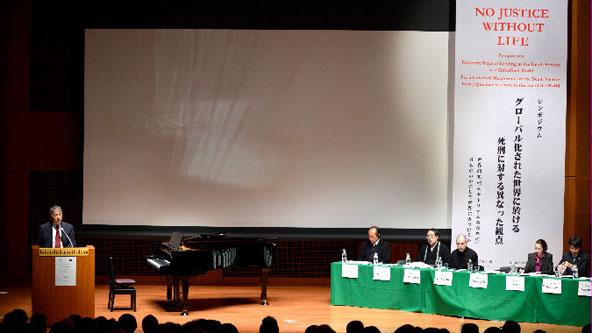
Article(s)
Japan’s death penalty under scrutiny
By The Advocates for Human Rights, on 5 November 2012
After a high-level conference on the abolition of the death penalty in Tokyo on October 29th, the United Nations’ Human Rights Council examined Japan’s record on October 31st as part of the Universal Periodic Review, a worldwide mechanism to monitor the enforcement of human rights. Major Japanese infringements concern the use of the death penalty.
2012
Clemency
Cruel, Inhuman and Degrading Treatment and Punishment
Death Row Conditions
Fair Trial
Intellectual Disability
Japan
Legal Representation
Mental Illness
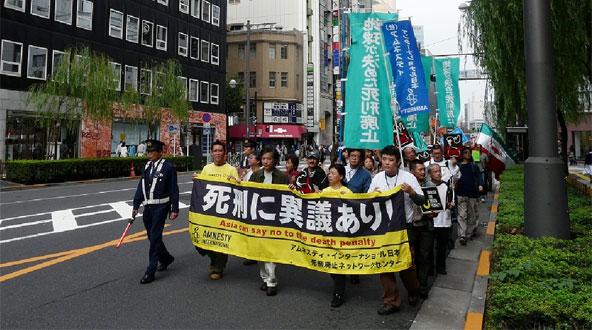
Article(s)
Japan death penalty at turning point
on 9 February 2012
After one year without executions, the Japanese government looks set to resume state killings. The Center for Prisoners’ Rights, a World Coalition member organisation, has launched an urgent petition to reverse the trend.
2012
Clemency
Japan

Article(s)
10.10.10 Looking back on the World Day in Asia
on 3 December 2010
The Anti-Death Penalty Asia Network rounds up reports from the main events organised across the Asia-Pacific region for World Day Against the Death Penalty on October 10.
2010
Australia
Bangladesh
India
Indonesia
Iran (Islamic Republic of)
Italy
Japan
Pakistan
Singapore
Terrorism
United States
Article(s)
EU-NGO forum: death penalty is a priority
on 6 August 2010
At a meeting in Brussels in July, European institutions and NGOs restated their commitment to a long-term partnership to oppose the death penalty worldwide.
2010
Innocence
Japan
Murder Victims' Families
Article(s)
Japan executions “a step backward for Asia”
on 30 July 2010
Activists in Japan and elsewhere have criticised Justice Minister Keiko Chiba for ordering two men to be hanged in Tokyo on July 28 despite her earlier abolitionist statements.
2010
Japan
Moratorium
Public Opinion
Taiwan
Article(s)
Universal abolition will happen when four key countries change sides
on 28 February 2010
The US, Iran, China and Japan hold a strategic cultural or geographic position, but the road to abolition remains blocked in those countries.
2010
China
Death Row Conditions
Iran (Islamic Republic of)
Japan
Juveniles
Switzerland
United States
Article(s)
Europe and Japan share “Reflections on life”
on 8 December 2009
Speaking at a symposium on the death penalty organised in Tokyo by the Swedish presidency of the European Union, a Japanese minister expressed his commitment for abolition.
2009
Innocence
Japan
Moratorium
Public Opinion
Article(s)
Japan executes mentally ill people and pushes prisoners over the edge
on 11 September 2009
The Japanese government continues to execute prisoners with psychiatric illnesses and the conditions on death row provoke mental disorders among inmates, according to a new Amnesty International report.
2009
Death Row Conditions
Japan
Mental Illness
Article(s)
Japan executions slammed
on 30 July 2009
The Japanese authorities hanged three death row inmates on July 28, attracting criticism throughout Asia and beyond.
2009
Japan
Article(s)
E Book review: a guidebook to the death penalty in Asia
on 10 March 2009
A new, authoritative study sheds a new light on capital punishment across Asia and may help abolitionists enhance their strategies.
2009
China
Japan
Philippines
Republic of Korea
Taiwan
Viet Nam
Article(s)
Activists oppose the death penalty across Asia
on 30 October 2008
Although European activists were slow to take action on World Day Against the Death Penalty, their Asian counterparts showed their strength, especially in the World Coalition’s target countries.
2008
India
Japan
Mongolia
Pakistan
Public Opinion
Republic of Korea
Taiwan
Article(s)
DVD carries the voice of abolitionists in Asian languages
on 4 August 2008
A DVD released by ADPAN features a campaigning video made from interviews with international anti-death penalty activists in 13 Asian languages.
2008
China
India
Indonesia
Japan
Lao People's Democratic Republic
Mongolia
Pakistan
Philippines
Republic of Korea
Thailand
Viet Nam
Article(s)
Japanese lawyer indignant after her client is executed without notice
on 23 June 2008
On June 17, Tsutomu Miyazaki, Shinji Mutsuda and Yoshio Yamazaki were executed in Japan. Lawyer Maiko Tagusari, who defended one of the three men, denounces the rising number of executions in her country.
2008
China
Japan
Legal Representation
Taiwan
Article(s)
Executions and secrecy in Japan
on 15 April 2008
The World Coalition condemns the acceleration of executions in Japan andt the continued secrecy surrounding them.
2008
Cruel, Inhuman and Degrading Treatment and Punishment
Japan
Article(s)
ADPAN: tearing down Asia’s death penalty veil of secrecy in 2008
on 3 February 2008
The majority of executions take place in Asia. But this is also the continent where campaigners have developed a fantastic regional abolitionist network, one that reaches across borders, languages and religions.
2008
China
Drug Offenses
Fair Trial
Japan
Mental Illness
Mongolia
Murder Victims' Families
Public Opinion
Republic of Korea
Document(s)
Law, society, and capital punishment in Asia
By David T. Johnson / Franklin E. Zimring / Punishment and Society, on 1 January 2008
2008
Article
Warning: Undefined variable $liste_type_doc in /home/worldcoa/coalition2020/wp-content/themes/WCADP/template-parts/contents-document.php on line 21
Warning: Undefined variable $liste_pays in /home/worldcoa/coalition2020/wp-content/themes/WCADP/template-parts/contents-document.php on line 40
Japan
Warning: Undefined variable $tag_langue in /home/worldcoa/coalition2020/wp-content/themes/WCADP/template-parts/contents-document.php on line 85
More details See the document
Students of capital punishment need to study Asia, the site of at least 85 percent and as many as 95 percent of the world’s executions. This article explores the varieties of Asian capital punishment in two complementary ways. Cross-sectionally, the impression of uniformity that comes from classifying 95 percent of the population of Asia as living in executing states breaks down when closer attention is paid to the character of capital punishment policy within retentionist nations. Temporally, the general trajectory of capital punishment in the Asian region seems downward (though generalizations about patterns in this part of the world are undermined by significant data problems). Asia is also a useful territory for testing the generality of theories of capital punishment based on European experience. Looking forward, Japan and South Korea, two developed nations in Asia that still retain the death penalty, may indicate what other Asian nations are likely to do as they develop. Ultimately, Asia either will become a major staging area for world-wide abolition or the campaign against capital punishment will fail to achieve global status.
- Document type Article
- Countries list Japan
Warning: Undefined variable $liste_themes in /home/worldcoa/coalition2020/wp-content/themes/WCADP/template-parts/contents-document.php on line 114
Warning: Undefined variable $lien_langue in /home/worldcoa/coalition2020/wp-content/themes/WCADP/template-parts/contents-document.php on line 127
Document(s)
The politics of increasing punitiveness and the rising populism in Japanese criminal justice policy
By Setsuo Miyazawa / Punishment and Society, on 1 January 2008
Article
Warning: Undefined variable $liste_type_doc in /home/worldcoa/coalition2020/wp-content/themes/WCADP/template-parts/contents-document.php on line 21
Warning: Undefined variable $liste_pays in /home/worldcoa/coalition2020/wp-content/themes/WCADP/template-parts/contents-document.php on line 40
Japan
Warning: Undefined variable $tag_langue in /home/worldcoa/coalition2020/wp-content/themes/WCADP/template-parts/contents-document.php on line 85
More details See the document
The purpose of this article is (1) to establish that increasing punitiveness characterizes criminal justice policies in Japan and (2) to explain this trend in terms of the penal populism promoted by crime victims and supporting politicians. This article first examines newspaper articles to illuminate the increasingly punitive character of recent criminal justice policies in Japan in terms of both legislation and judicial decisions. The next section discusses the main contributing factors behind this trend and its public acceptance. The next two sections discuss two related issues: the public’s subjective sense of security, and the lack of a role for empirical criminologists in criminal justice policy making in Japan. The concluding section compares the Japanese and Anglo-American situations and argues that the same penal populism seen in Anglo-American countries is rapidly rising in Japan, and that public distrust of government has ironically increased the state’s investigative, prosecutorial, and sentencing powers in Japan. This article closes with the conjecture that police, prosecutors, and judges are unlikely to relinquish their increased power in the event that they gain the public’s trust and equally unlikely in the event of a change of the ruling party.
- Document type Article
- Countries list Japan
Warning: Undefined variable $liste_themes in /home/worldcoa/coalition2020/wp-content/themes/WCADP/template-parts/contents-document.php on line 114
Warning: Undefined variable $liste_themes in /home/worldcoa/coalition2020/wp-content/themes/WCADP/template-parts/contents-document.php on line 121
- Themes list Networks,
Warning: Undefined variable $lien_langue in /home/worldcoa/coalition2020/wp-content/themes/WCADP/template-parts/contents-document.php on line 127
Document(s)
The People Decide: The Effect of the Introduction of the Quasi-Jury System (Saiban-In Seido) on the Death Penalty in Japan
By Leah Ambler / Northwestern Journal of International Human Rights, on 1 January 2007
2007
Article
Warning: Undefined variable $liste_type_doc in /home/worldcoa/coalition2020/wp-content/themes/WCADP/template-parts/contents-document.php on line 21
Warning: Undefined variable $liste_pays in /home/worldcoa/coalition2020/wp-content/themes/WCADP/template-parts/contents-document.php on line 40
Japan
Warning: Undefined variable $tag_langue in /home/worldcoa/coalition2020/wp-content/themes/WCADP/template-parts/contents-document.php on line 85
More details See the document
This article examines the potential impact of the new lay assessor system, or saiban-in seido, on capital punishment in Japan, and considers whether it may reduce death sentences to the point of effectively abolishing them at trial stage in the District Court. The article posits that the introduction of the lay assessor system may create the momentum for Japan to align its criminal justice system with that of other developed countries—that is, abolition of the death penalty as an available criminal sanction.
- Document type Article
- Countries list Japan
Warning: Undefined variable $liste_themes in /home/worldcoa/coalition2020/wp-content/themes/WCADP/template-parts/contents-document.php on line 114
Warning: Undefined variable $liste_themes in /home/worldcoa/coalition2020/wp-content/themes/WCADP/template-parts/contents-document.php on line 121
- Themes list Networks,
Warning: Undefined variable $lien_langue in /home/worldcoa/coalition2020/wp-content/themes/WCADP/template-parts/contents-document.php on line 127
Document(s)
Japan’s Secretive Death Penalty Policy: Contours, Origins, Justifications, and Meanings
By David T. Johnson / Asian-Pacific Law & Policy Journal, on 1 January 2006
2006
Article
Warning: Undefined variable $liste_type_doc in /home/worldcoa/coalition2020/wp-content/themes/WCADP/template-parts/contents-document.php on line 21
Warning: Undefined variable $liste_pays in /home/worldcoa/coalition2020/wp-content/themes/WCADP/template-parts/contents-document.php on line 40
Japan
Warning: Undefined variable $tag_langue in /home/worldcoa/coalition2020/wp-content/themes/WCADP/template-parts/contents-document.php on line 85
More details See the document
The secrecy that surrounds capital punishment in Japan is taken to extremes not seen in other nations. This article describes the Japanese state’s policy of secrecy and explains how it developed in three historical stages: the “birth of secrecy” during the Meiji period (1867 – 1912); the creation and spread of “censored democracy” during the postwar Occupation (1945 – 1952); and the “acceleration of secrecy” during the decades that followed. The article then analyzes several justifications for secrecy that Japanese prosecutors provide. None seems cogent. The final section explores four meanings of the secrecy policy that relate to the sources of death penalty legitimacy, the salience of capital punishment, the nature of Japan’s democracy, and the role and rule of law in Japanese society.
- Document type Article
- Countries list Japan
Warning: Undefined variable $liste_themes in /home/worldcoa/coalition2020/wp-content/themes/WCADP/template-parts/contents-document.php on line 114
Warning: Undefined variable $liste_themes in /home/worldcoa/coalition2020/wp-content/themes/WCADP/template-parts/contents-document.php on line 121
- Themes list Transparency,
Warning: Undefined variable $lien_langue in /home/worldcoa/coalition2020/wp-content/themes/WCADP/template-parts/contents-document.php on line 127
Document(s)
Death by hanging
By Nagisa Oshima, on 1 January 1968
1968
Multimedia content
Warning: Undefined variable $liste_type_doc in /home/worldcoa/coalition2020/wp-content/themes/WCADP/template-parts/contents-document.php on line 21
Warning: Undefined variable $liste_pays in /home/worldcoa/coalition2020/wp-content/themes/WCADP/template-parts/contents-document.php on line 40
Japan
Warning: Undefined variable $tag_langue in /home/worldcoa/coalition2020/wp-content/themes/WCADP/template-parts/contents-document.php on line 85
More details See the document
- Document type Multimedia content
- Countries list Japan
Warning: Undefined variable $liste_themes in /home/worldcoa/coalition2020/wp-content/themes/WCADP/template-parts/contents-document.php on line 114
Warning: Undefined variable $liste_themes in /home/worldcoa/coalition2020/wp-content/themes/WCADP/template-parts/contents-document.php on line 121
- Themes list Hanging, Death Penalty,
Warning: Undefined variable $lien_langue in /home/worldcoa/coalition2020/wp-content/themes/WCADP/template-parts/contents-document.php on line 127
China
RetentionistDeath penalty legal status
CountriesDemocratic People’s Republic of Korea
RetentionistDeath penalty legal status
CountriesIran (Islamic Republic of)
RetentionistDeath penalty legal status
CountriesIraq
RetentionistDeath penalty legal status
CountriesJapan
RetentionistDeath penalty legal status
CountriesMalaysia
RetentionistDeath penalty legal status
CountriesSaudi Arabia
RetentionistDeath penalty legal status
CountriesUnited States
RetentionistDeath penalty legal status
CountriesViet Nam
RetentionistDeath penalty legal status
CountriesZambia
Abolitionist for ordinary crimes onlyDeath penalty legal status
CountriesZimbabwe
Abolitionist for all crimesDeath penalty legal status
Countries
